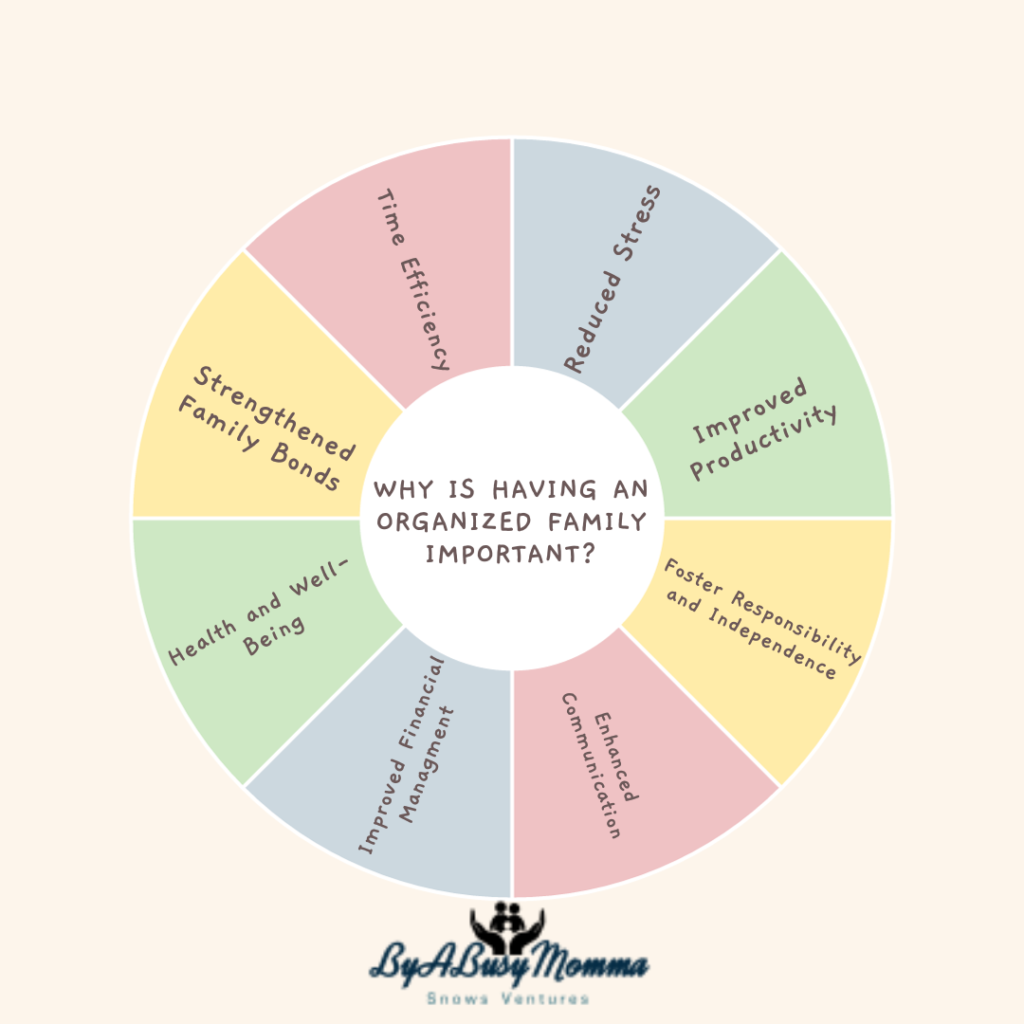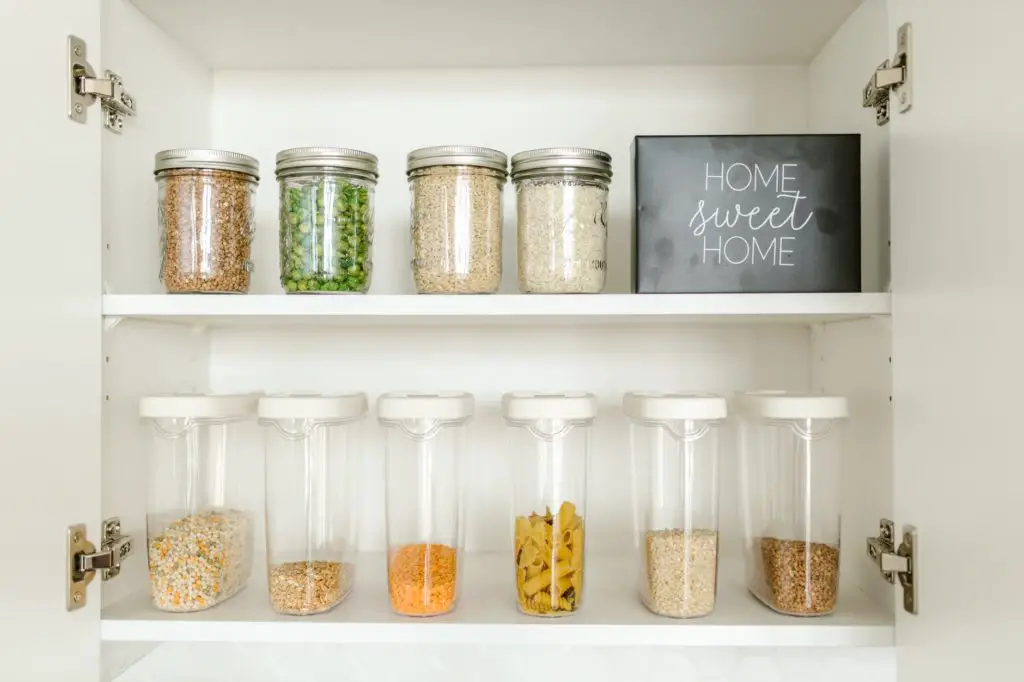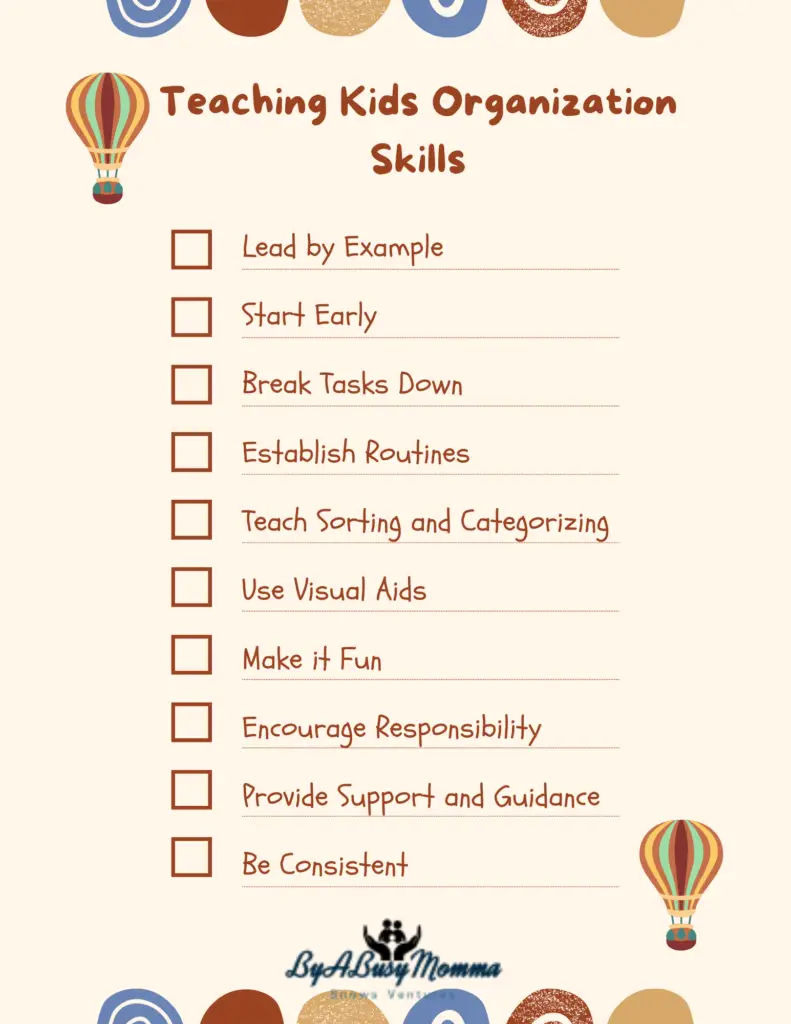Having an organized family offers many benefits and advantages. As busy moms, organization helps us keep the family balance going no matter what responsibilities come our way. As a busy mom, having an organized family enables you to get more done and helps keep you mentally peaceful. Below are some benefits of having an organized home and family life.

Also, here are a few great organization tools for the family you can find on Amazon.

Here are some reasons why organization is essential for your family:
- Time Efficiency: Organization helps save time by streamlining routines and reducing the time spent searching for misplaced items or figuring out what needs to be done. With systems in place, you can accomplish tasks more efficiently, leaving more time for meaningful activities and quality time with your loved ones.
- Reduced Stress: An organized environment and routine can significantly reduce stress levels for parents and children. When everything has its place and tasks are well-planned, there is less mental clutter and a greater sense of control. This reduces the feeling of being overwhelmed and makes it easier to manage daily responsibilities.
- Improved Productivity: The organization enhances productivity by providing structure and clarity. With a clear plan and systems, you can focus on the tasks without distraction. This applies to parents’ work responsibilities and children’s schoolwork and extracurricular activities. Increased productivity leads to a greater sense of accomplishment and satisfaction.
- Foster Responsibility and Independence: The Organization teaches essential life skills such as responsibility, accountability, and independence. When children learn to manage their belongings, follow routines, and contribute to household tasks, they develop a sense of ownership and responsibility. They also gain valuable skills that will benefit them throughout their lives.
- Enhanced Communication: The organization promotes effective communication within the family. Misunderstandings and conflicts are minimized when everyone is on the same page regarding schedules, responsibilities, and expectations. Clear communication also fosters mutual support and understanding among family members.
- Improved Financial Management: An organized family tends to have better financial management. By tracking expenses, creating budgets, and having systems for bill payments, you can avoid late fees, overspending, and financial stress. Teaching children about money management within an organized framework sets them up for a lifetime of financial responsibility.
- Health and Well-being: An organized home promotes a healthier and safer living environment. Clutter-free spaces reduce the risk of accidents and promote physical and mental well-being. Additionally, an organized family is likelier to establish healthy habits such as regular exercise, meal planning, and self-care.
- Strengthened Family Bonds: Organization can bring your family closer together. Shared routines, responsibilities, and activities foster a sense of togetherness and cooperation. When everyone participates in maintaining an organized home, it creates a sense of unity and shared responsibility.
Overall, having an organized family improves efficiency, reduces stress, and promotes a harmonious and supportive environment. It empowers family members to take control of their lives, develop essential life skills, and strengthen relationships within and outside of the home.

Here are some additional points to consider on the importance of having an organized family:
- Teaching Life Skills: Organization is a valuable life skill that extends beyond the immediate benefits of a tidy home. When children learn to organize their belongings, manage their time, and prioritize tasks, they develop essential skills for success in various areas of life, including school, work, and personal relationships. These skills contribute to their long-term independence and self-sufficiency.
- Role Modeling: As a parent or guardian, modeling organization sets a positive example for your children. When they see you managing your time effectively, keeping your spaces tidy, and staying on top of responsibilities, they are more likely to adopt these habits. Your actions speak louder than words, and embodying organization creates a culture of order and efficiency within your family.
- Reduced Clutter and Stress: Clutter can harm mental and emotional well-being. It can lead to feeling overwhelmed, increased stress levels, and difficulty focusing. Maintaining an organized environment creates a calmer and more peaceful atmosphere for your family. Reduced clutter also makes finding things more manageable, saving time and reducing frustration.
- Improved Time Management: Organization helps you make the most of your time. Having a clear plan and structure, you can prioritize tasks effectively and allocate your time accordingly. This allows you to accomplish more in less time, leaving room for leisure activities, quality time with loved ones, and self-care.
- Enhanced Efficiency and Productivity: An organized family operates more efficiently. When everyone knows their responsibilities and tasks and systems are in place to support those tasks, productivity improves. This applies to household chores, schoolwork, work-related duties, and other activities. Streamlining processes and eliminating unnecessary steps or redundancies increases efficiency and productivity.
- Improved Financial Stability: Organization plays a vital role in financial stability. You can better manage your finances by tracking expenses, creating budgets, and having systems for bill payments and financial planning. This helps you avoid late fees, overspending, and unnecessary stress related to money management. An organized approach to finances sets the stage for long-term financial well-being for your family.
- Promoting Responsibility and Accountability: An organized family cultivates a sense of responsibility and accountability among its members. When everyone is aware of their roles and responsibilities, it fosters a culture of reliability and follow-through. Each family member understands their contribution to the overall functioning of the family unit, which strengthens the sense of shared responsibility.
- Creating Space for Meaningful Connections: When your family is organized, you create more opportunities for quality time and meaningful connections. With routines and systems in place, you can free up time for activities that bring you closer together, such as family meals, game nights, outings, or simply engaging in open and honest conversations. An organized family environment allows for more significant presence and engagement with one another.
Remember, organization is not about perfection but finding systems and strategies that work for your family. It’s an ongoing process that requires consistency and adaptability. By prioritizing organization, you create a supportive and efficient framework that benefits every family member and contributes to their well-being and happiness.
A big part of staying organized as a family is teaching your child/children to also learn organization skills from a young age. Teaching children organization skills is a valuable investment in their future.

Here are some steps to help you get started on getting your kids on board with organizing the home and their life:
- Lead by Example: Children learn best by observing and imitating their parents or guardians—model organization skills in your own daily life. Let them see you maintaining an organized space, managing your time effectively, and following routines. Your actions will be a powerful example and encourage them to develop similar habits.
- Start Early: Introduce basic organization concepts and practices to your children from a young age. Teach them the importance of returning toys and belongings to their designated places after use. Please encourage them to keep their rooms tidy and assist them in creating simple organizational systems, such as using bins or shelves for different types of toys.
- Break Tasks Down: Break down larger tasks into smaller, manageable steps for your children. For example, instead of telling them to clean their room, provide clear instructions like “Put away your clothes in the closet” or “Pick up all the books and put them on the shelf.” Breaking tasks down helps children feel more confident and motivated to complete them.
- Establish Routines: Routines provide structure and make it easier for children to stay organized. Create consistent routines for morning and bedtime, including tasks like making the bed, packing school bags, or laying out clothes for the next day. Having predictable patterns helps children develop a sense of order and responsibility.
- Teach Sorting and Categorizing: Help your children understand the concept of sorting and categorizing items. Please encourage them to group toys, books, or clothes based on similarities (e.g., color, size, type). This develops their organizational thinking and helps them recognize patterns and similarities in different objects.
- Use Visual Aids: Visual aids can be powerful tools in teaching organizational skills. Use labels or picture cues to designate storage spots for different items. For younger children who still need to become proficient readers, visual labels or drawings can be beneficial in identifying where things belong.
- Make it Fun: Incorporate playfulness and creativity into organizing activities. Turn cleaning up into a game or a challenge. Use colorful bins or labels to make organizing visually appealing. Let your children personalize their storage solutions with stickers or drawings. By making the organization enjoyable, you increase their engagement and motivation.
- Encourage Responsibility: Foster a sense of responsibility by involving your children in age-appropriate household tasks. Assign them tasks like setting the table, feeding pets, or putting away groceries. This helps children understand their contribution to the family and develops a sense of ownership and accountability.
- Provide Support and Guidance: Be patient and supportive as your children learn organization skills. Offer guidance and assistance when needed, especially when they are first starting. Celebrate their achievements and provide positive reinforcement to encourage their continued efforts.
- Be Consistent: Consistency is vital in teaching organizational skills. Reinforce the importance of organization consistently and establish regular routines and expectations. Over time, these consistent practices will become habits for your children.
Remember, each child is unique, and some may naturally gravitate towards organization , while others may require more guidance and practice. Be flexible and adjust your approach based on their needs and learning styles. With patience, advice, and a supportive environment, you can help your children develop lifelong organization skills that will benefit them in various aspects of their lives.
